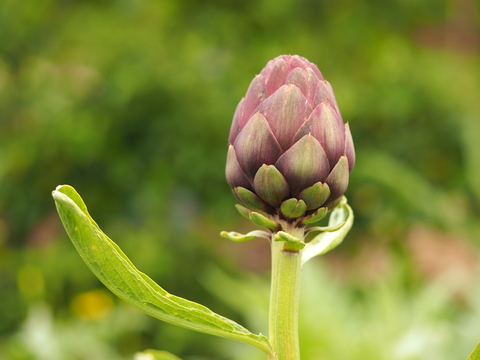Artichoke Leaf

Also known as Cynara scolymus
Introduction The artichoke is one of the world's oldest vegetables. It was first grown in eastern Africa and then made its way to Europe via Egypt. Images of artichokes are found on ancient Egyptian papyri and on sacrificial altars. The ancient Romans discovered that artichoke leaf was valuable as a digestive aid, making it a "noble" vegetable only to be consumed by the nobility and rich.
Constituents Cynarin, beta-sitosterol, luteolin, stigmasterol.
Parts Used Dried leaf, rather than the flowering buds eaten as a vegetable.
Typical Preparations Powdered herb, teas, capsules and extracts.
Summary In Europe, where artichoke leaf has a long history as an herbal medicine, vague digestive symptoms are commonly attributed to inadequate flow of bile from the gallbladder. Evidence tells us that artichoke leaf does indeed stimulate the gallbladder, and the release of bile counteracts excessive stomach acids or excessive fats to cure bloating, belching, and gas. Artichoke leaf may lower cholesterol, but, unlike statin drugs, it will not lower cholesterol below healthy levels. In a clinical study involving volunteers who had high cholesterol, artichoke leaf lowered total cholesterol 18.5% as compared to 8.6% in the placebo group; LDL cholesterol by 23% vs. 6%; and LDL-to-HDL ratios by 20% vs. 7%. In a follow-up study with volunteers who already had healthy cholesterol, it had no effect.
Precautions Don't use artichoke leaf if you have gallstones. Safety in pregnant women, nursing mothers, and children under the age of 12 has not been established.
PURCHASE ARTICHOKE LEAF EXTRACT HERE
For educational purposes only.
This information has not been evaluated by the Food and Drug Administration.
This information is not intended to diagnose, treat, cure, or prevent any disease.
This information courtesy of MOUNTAIN ROSE HERBS, with full, written permission for reuse.
For further traditional information concerning Artichoke Leaf, please visit this excellent resource fromBotanical.com. Used with full, written permission.






